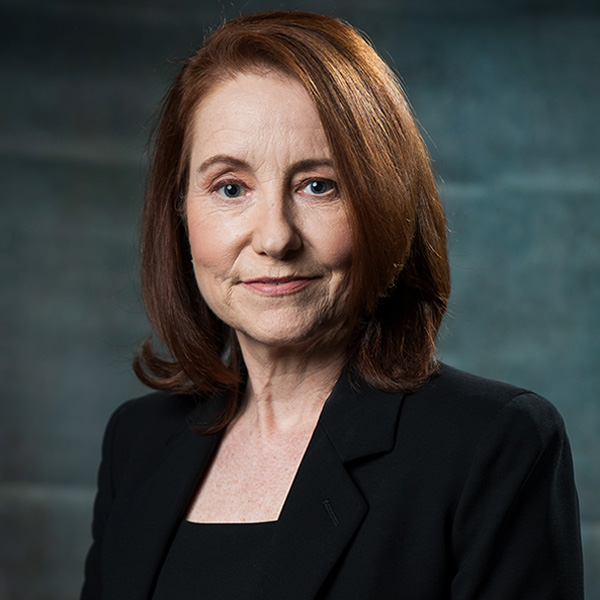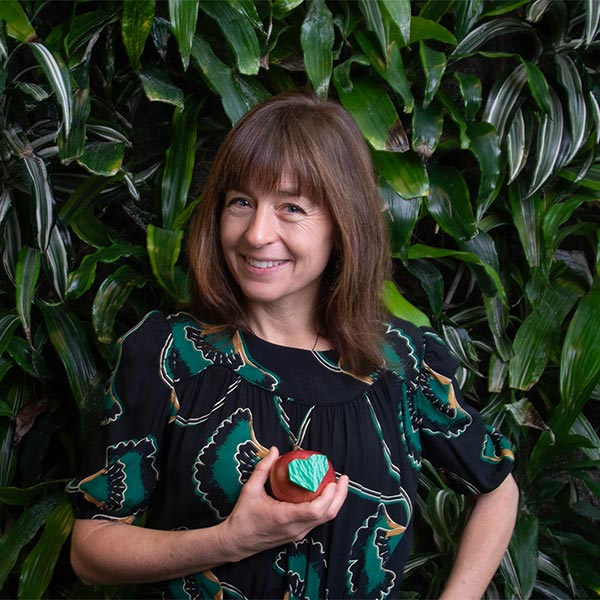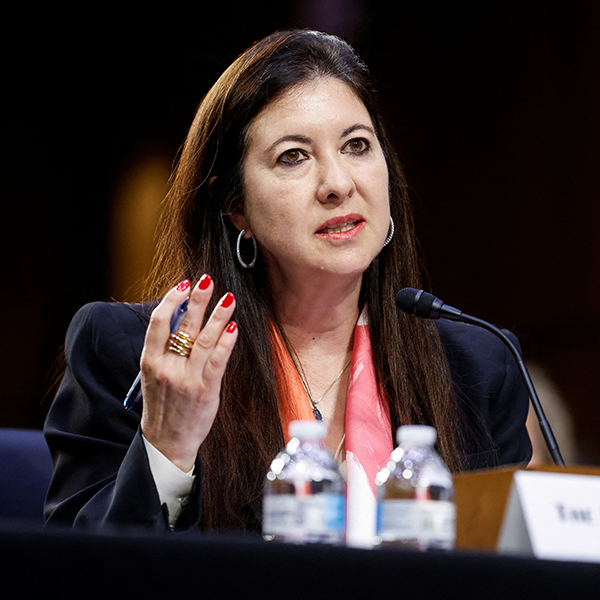These are difficult times for Canada’s ever-shrinking media landscape — especially for investigative journalism, a resource-intensive discipline that is particularly vulnerable to newsroom cutbacks.
Allya Davidson, BA’09, is well aware of that reality.
At the beginning of the year, she became the executive producer of CBC’s The Fifth Estate, one of only two investigative documentary programs on Canadian network television, the other being CTV’s W5. “The responsibility is not lost on me. I think about it every day,” she says.
Her task is to keep producing incisive public-interest journalism while also building new audiences — younger and more diverse — for The Fifth Estate’s investigations, which have won a slew of awards since the show debuted in 1975 (including an Oscar, one of only two TV shows to have done so).
And to do that, she is building on her experience of working as a journalist in Canada, the United Kingdom and the United States, one who is also a Black woman: a rarity in this country, where research by the Canadian Association of Journalists (CAJ) has found that half of all newsrooms have only white journalists on staff, and 80 percent have no Black or Indigenous reporters at all.
It’s a situation that, in Davidson’s experience, limits the scope and quality of journalism those newsrooms are able to produce.
“I would be told stories about Black people were too niche and didn’t serve a broad audience,” she says. “If we want to serve a community, we need to do certain kinds of stories to serve that community, but that doesn’t mean it isn’t relevant to all Canadians.”
Davidson’s involvement in journalism began in Mississauga when she was 13 years old. “I founded a newspaper in my middle school. I was just a bossy know-it-all kid so the idea of snooping around and reporting was appealing to me,” she says, laughing.
When she began her undergraduate studies at McGill, she started writing for the McGill Daily, but she was especially interested in the university’s broadcast outlets, CKUT Radio and TV McGill.
“I loved writing and still do, but the immediacy of being able to go out with a recorder or a camera and file away, that was really important to me.” She thinks back to September 11, 2001, when she sat with her classmates at school and watched the events of that tragic day unfold. “That immediacy really sat with me,” she says.
Davidson says she opted for a degree in cultural studies and world religions at McGill instead of going to journalism school because she liked the idea of a broad-based education.
“I wanted to know about a few different things as opposed to learning a specific craft or skill right out of the gate,” she says.
After graduation and a brief internship at a now-defunct media outlet in New York City, Davidson moved to London where she earned a master’s degree in journalism at the City University of London.
That led her to a job with a production company that made documentaries for PBS, Channel 4, ABC Australia and other global networks – deep-dive work that plunged her into stories like Afghanistan’s so-called opium brides, who were traded to drug traffickers as repayment for debts, and Al-Qaeda’s presence in Yemen.
It was her first taste of the impact that investigative journalism can have, and it led her to a succession of jobs making in-depth documentaries for The Fifth Estate, Vice Media and W5. Over the course of her career, she has been part of a couple of Emmy Award-winning teams. Earlier this month, she and her Fifth Estate colleagues took home a Canadian Screen Award for Best News or Information Series (she was a senior producer on the show before taking on the top job).
At Vice, she worked on a story called “Canada’s Waterless Communities” that looked at First Nations reserves that lacked safe drinking water.
“At the time, no one was really talking about it,” she says. Then the documentary aired and Justin Trudeau, BA’94, running in the 2015 election that would make him prime minister, made the issue part of his campaign. “It certainly hasn’t been fixed, but it’s now something that we’ve put on the table that needs to change,” says Davidson. “It’s in the public consciousness.”
Davidson is taking the helm of The Fifth Estate at a time when budget cuts across the news industry have taken their toll on investigative reporting. “As the industry contracts, investigative falls away because it’s expensive,” she says. “It takes time, human resources, money and legal support.”
It doesn’t help that investigative reporting can come across as stodgy and dull, even if it is important. Like medicine, it’s not something taken for pleasure.
“It tends to present as stiff,” says Davidson. To that end, she is looking at ways to make The Fifth Estate’s reporting more accessible — “to meet our audience where they are,” she says.
That includes more of a presence on social media and streaming platforms like YouTube, and content adapted to those new media rather than just broadcast television, with its prescribed advertising breaks and limited airtime.
Davidson is also looking to reflect parts of Canada that the news media has historically overlooked. To that end, she personally mentors BIPOC (Black, Indigenous and people of colour) journalists through a CAJ program, and she makes sure The Fifth Estate keeps tabs on promising applicants from a diverse range of backgrounds.
And it also means moving past the attitude that Davidson encountered when she started her career, which saw Black stories — or those of any particular group — as too niche to appeal to all Canadians.
She is particularly proud of a story that aired last year, “Sold a Lie,” which looked at private career colleges operating visa scams that exploit students recruited in South Asia. It was promoted in Punjabi as well as English, which drew many viewers in India to the episode’s YouTube version. Davidson says that while the story specifically concerned members of the South Asian community, “it impacts every Canadian, because it contributes to the underfunding of our college system.”
Davidson says viewers of The Fifth Estate can expect more stories like that in the future. And, beyond their impact on public policy, she hopes they deliver a message to everyone who sees them: “We need more investigative journalism.”


